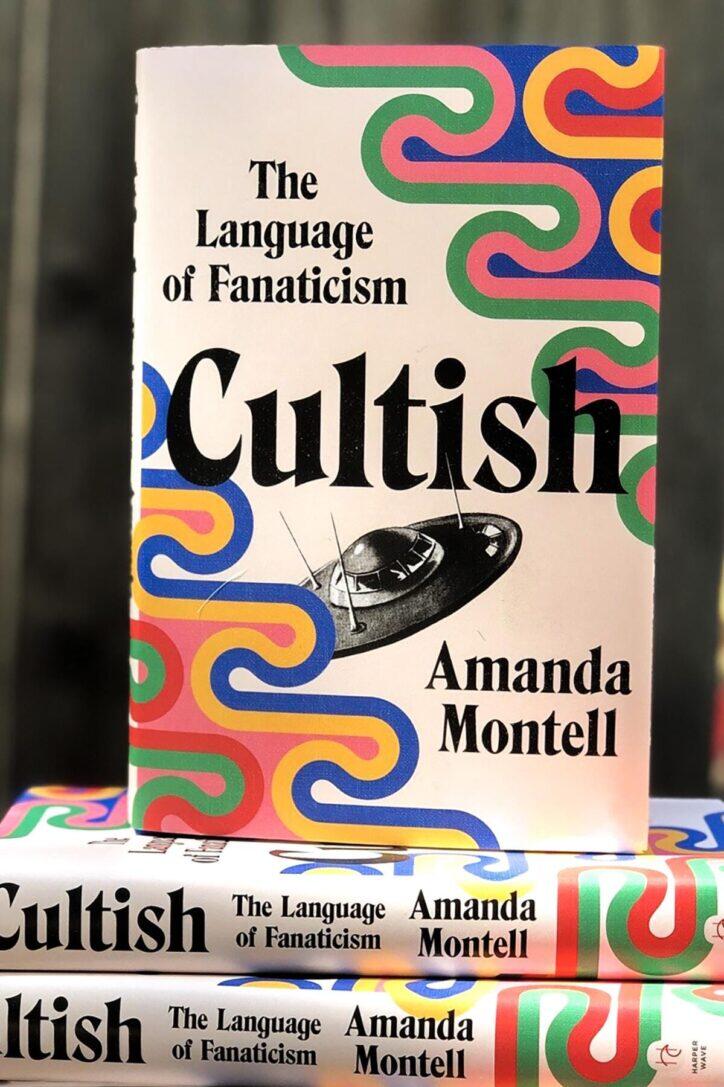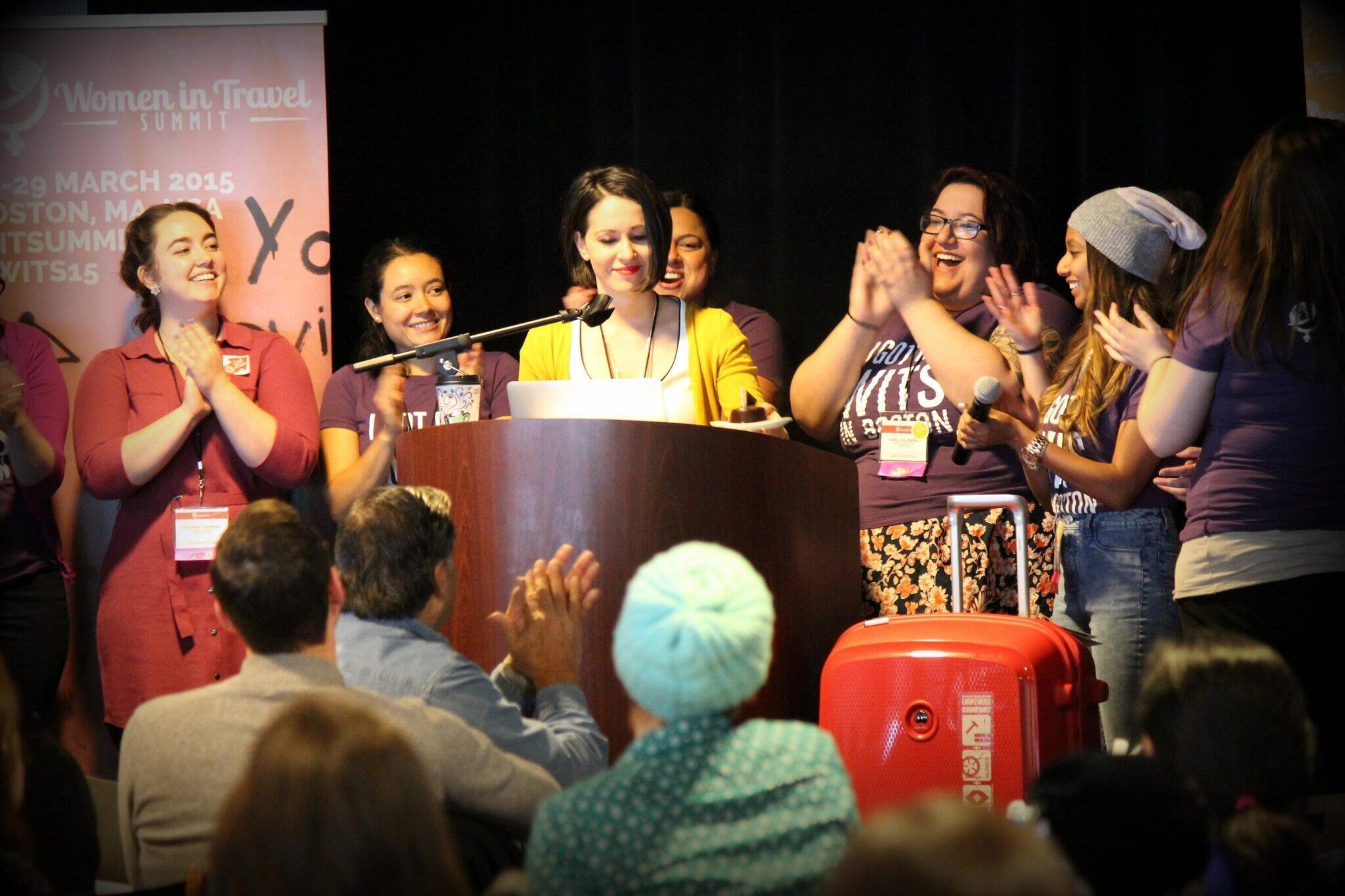An interview with writer and linguist Amanda Montell, author of ‘Cultish,’ Fodor's July Book Club pick.
“Did you watch the one about Scientologists? Or the one about the sex cult in upstate New York? Or the new FLDS one?”
Culturally, cults are having a capital M moment. Much like the art of the scam, discussed in previous Fodor’s Book Club pick Cover Story, as a societal collective, we can’t get enough of the salacious details, wild indoctrination stories, and the seemingly horrifying practices hidden within the dark world of cults.
Much could be said about the proverbial rubbernecking, and “Whew! That could never happen to me!” naysaying we all participate in when we talk about cults; even more is said about why we eat up the juicy secrets revealed when tell-alls hit our go-to streamers. But this month’s Fodor’s Book Club pick, Cultish: The Language of Fanaticism, reveals the specificity and science behind why people even get caught up in cults in the first place.
Amanda Montell, author, linguist, and certified word junkie, dives into the world of cult-like brands (Crossfit, Soul Cycle) and major, soul-shattering, life-ruining cults (the Jonestown Massacre, the Waco siege). Whether merely addictive or full-on fanatical, these groups have a way of inventing and often times weaponizing language to the tune of feverish devotion.
Recommended Fodor’s Video
Despite Montell’s authoritative and scholarly background, she manages to write about the subject with wit, zippy pop culture references, and wry humor, while also withholding judgment of the subjects. She illuminates the reader about how people fall into cults—and how, despite our protests, it could happen to anyone. Even ourselves.
Fodor’s sat down with Amanda to get insight on her background, her inspiration for the book, and to chat about all things nerdy and wordy.
FODOR’S BOOK CLUBWant to read more interviews like this? Make sure you’re signed up for Fodor’s Book Club. You’ll be reading our monthly picks alongside thousands of Fodor’s readers, be entered into exclusive giveaways and contests, and get more fun book-related content delivered straight to your inbox.

FODOR’S: We’ve read that you’ve got a thing for words and picking up languages–what are some of your favorite words?
AMANDA MONTELL: In my first book jacket, I didn’t really have any accolades, so I literally was just like, “Amanda Montell is from Baltimore” and then I named my two favorite words. At the time I said my favorite English word is “nook” and I still love that word. [There’s] just a good snap, crackle, pop to that word, but also, the meaning is so cozy. And then I said my favorite foreign word was this very Scottish word that even many Scottish people don’t know or use. It’s the word “tartle” and it’s when you go to introduce someone and realize you’ve forgotten their name. That’s a good one. I have a [whole] coffee table book of untranslatable words from other languages.
I want to get your thoughts around the racial implications of cults cherry-picking ideas from other religions and teachings for clout or to kind of legitimize themselves.
Ever since the sort of new religious boom in the 1960s and ’70s, when people were kind of distrusting the government, [people] started turning toward the East and Indigenous practices, and the occult for new ways to engage in ritual and community. And [we see] that with New Age groups today, they sort of co-opt and bastardize and weaponize Eastern and Indigenous spiritual practices.
What a lot of folks don’t realize, and I didn’t realize until I started my research for Cultish, was that Jonestown, the event that put cults on the map for a lot of Americans, was a tragedy involving the deaths of mostly Black women. Brian Jonestown (the leader of the massacre) would employ a really sort of diabolical method of code-switching, studying the oratory stylings of Black leaders like Dr. Martin Luther King, and put this “Jonesian” twist on them in order to communicate to middle-age Black women active in San Francisco’s church scene that he was not another white savior, that he was someone you could trust. And this is mainly information and research I learned from reading Sikuvu Hutchinson’s White Knights, Black Paradise.
You’re a fellow Angeleno, so I wanted to chat with you about the minor and not-so-minor cults of L.A. Everything from upscale grocery mart Erewhon to organized religions like Scientology. I feel like Los Angeles is the capital of woo-woo-ism in a lot of ways.
It’s true. I actually found a lot of my sources for the book just out and about. Yeah, [L.A.] is a town of dreamers and having big dreams is one of the less expected ways that you can be vulnerable to cult influence. One of Scientology’s most successful tactics is getting aspiring performers to come to one of their artist workshops.
We’re a town of like “Manifest Destiny.” This is where you come for fame, enlightenment…and I kind of like the fantastical element of this town. You can find it in Asheville…Sedona…
Asheville?! Really.
Oh yeah, I was there last summer and it was just…meditating in salt caves, and drinking kombucha. But yeah, I think what kind of makes L.A. unique is that intersection of the entertainment business and the “woo-woo.” When I think of Erewhon, I don’t just think of people wanting to be healthy in a luxurious way, I also think of Gwyneth Paltrow, you know? And that’s the cultiness of L.A., that intersection between celebrity and spirituality.
Related: 10 Cults From Around the World
Piggy-backing off of that, do you think it’s a chicken-or-the-egg situation with celebrities? Do they fall prey to cults so often because they are celebrities, or do we just associate them with being in cults because we see it so much?
Well, I think being a celebrity is very lonely. And so when someone is offering this thing where it’s like, ‘It doesn’t matter if you’re famous,’ that can feel more grounding and you can easily take advantage of someone’s loneliness that way.

You come from a beauty background as the former Beauty and Features editor at Byrdie. I want to hear your thoughts about the complimentary industries of beauty and “Girlboss” culture and the language we use to talk about it. You mention in the book the different PR emails you’d receive about “cult” products and the words used to describe products. Tell me more about that.
So much about the beauty industry ended up on the cutting room floor! But yeah, I was totally sucked up into the cult of the beauty industry. I mean, it invents so many problems. Like, you’re fundamentally defective as a woman. You need these products to fix you. And groups like Scientology do the same thing too where it’s like you’re defective because the spirits of ancient aliens are within you. And that’s the beauty industry in a lower-stakes way. I don’t think it’s all bad across the board, but I think the beauty industry as a whole thrives with the message of “there’s something wrong with you.” You need this eye cream, this bee venom serum to correct it. And that thing is not going to correct it. You just find yourself in this spiral of trying to meet this standard that you fundamentally can’t meet. When I was in the beauty industry, I thought I needed all that to be a valuable person. I still subscribe to these beauty standards a little bit. But I do have cognitive dissonance about it because I don’t like that I don’t feel good about myself when I don’t have these things.
INSIDER TIPAmanda has a whole episode devoted to the beauty industry and the cult of skincare on her podcast ‘Sounds Like a Cult.’
What do you think the Venn diagram of scammers and cults is–do you think all cult leaders are scammers and vice versa?
Yes, I think that all cult leaders are scammers, but one of the key differences is the community aspect. Not all scammers are trying to build an empire. This is the nebulousness of the word “cult”–even for people who study this stuff formerly. I think your average run-of-the-mill con artist or Tinder Swindler isn’t a cult leader, but someone like Elizabeth Holmes is slightly closer to a cult leader because she was trying to build this Theranos community with larger ideologies and beliefs and false promises. That was a scammer or con artist who was maybe inching towards cult leader status.
‘Cultish: The Language of Fanaticism’ by Amanda Montell (published by Harper Wave/HarperCollins) is available now in hardback and e-book. Montell is also the author of ‘Wordslut: A Feminist Guide to Taking Back the English Language‘ and tune into her podcast Sounds Like A Cult for more cult breakdowns, streaming wherever you listen to podcasts.




